Pyramidice is a game mixing dice and card mechanics in a contest where timing and skillful manipulation of tactics reign supreme. In this article, originally published by Game Trade Magazine in December 2023, the game designer Luigi Ferrini ("The Golden Ages", "Ensemble") tells about the game creation and its development, from the first idea to the final release.
"Sometimes, ideas come when you don't expect them. It was 2008, I was playing a game including a bunch of dice as components, and I found myself stacking them on top of each other to form a pyramid. I'm sure something like this has happened to most players, fidgeting with dice or other game components – perhaps even with Ticket to Ride trains! There is an unconscious search for order in arranging your game components meticulously in front of you, and I had the idea of designing a game about this. An early prototype was quickly produced, but unfortunately it didn't work very well. The Egyptian theme of Pyramidice was there already – you would build pyramids and obelisks – but it was a game lacking depth, so I put it aside.
After some time, I found on my computer a version of Microsoft Publisher with a very large library of clipart. Today, these libraries no longer make sense, because much more can be found on Internet, but at the time having a lot of images available was a great time saver. In this library there were a lot of gods from the Egyptian pantheon, and – probably for the same reason that led me to stacking the dice – I found aesthetically pleasant to create a deck of cards with these figures, all of which were stylistically similar.
I already had the Egyptian-themed dice-stacking game in my drawer, so I added the deck of cards, and additional game mechanics, to it: I envisioned a pool of workers that were “spent” by building dice to form the Pyramid of Cheops but could be replenished by taking time to rest. I liked the idea that dice could become bricks on the pyramid or used to acquire the favor of the gods: in this way, even low value dice had their function and were often very useful, depending on the strategy pursued.
The game thus made was simple and suitable for everybody, easy to play even within the family. I was not entirely convinced, however, and I set it aside with the idea of improving it further. Unfortunately, the worst thing that can happen during development of a new game design happened: I got stuck, unable to finish the project to my liking.
A few years passed. Ergo Ludo Editions, after publishing some of my other games (such as Ensemble), asked me if I had any light game to present to them. A little hesitant, I opened the drawer and dug out this prototype, that was sitting there for such a long time. Although its limits were clear to everyone, Ergo Ludo’s editors really liked the idea right away.
I decided to trust their instinct, because I knew the game was going to be in the hands of great developers – Daniele Ursini and Lorenzo Maria Conti – who had more faith in it than I did. They tried the one path that I had not dared to take: additional mechanics, at the expense of some extra complexity – a direction which I initially did not follow as I had envisioned only ”casual” gamers as its ideal target audience (and, I must admit, I was wrong). Daniele and Lorenzo had several good ideas and submitted them to me. The most important one was to turn the worker track into a proper “warehouse”, adding a new resource (sacred cats) with the dual function of making dice rolls more manageable and providing more variety to both rest turns and gods’ powers (and on top of that, we could put cat meeples in the game!).
The presence of cards with special powers required the developers to test and correct them endlessly. In this game you will not find a single value out of place: Every power of the deities, their cost, the number of cards that build up the deck are the result of a long chisel work. The same development was also done for project cards, scarabs, construction costs: everything is extremely balanced, and you will notice it as you play. You will see that, although Pyramidice is at its core a dice management game, winning will never be a matter of mere luck, but will be based on your ability to read your opponents' strategy.
At the end, I learned a useful lesson from this long development process: sometimes it is better to avoid getting stuck on your ideas and, instead, to accept to entrust your game to someone else who can look at it from a new point of view. Of course, it demands good developers to do it. And I must admit it, I got lucky!"
*Photo by Giacomo Mearelli.

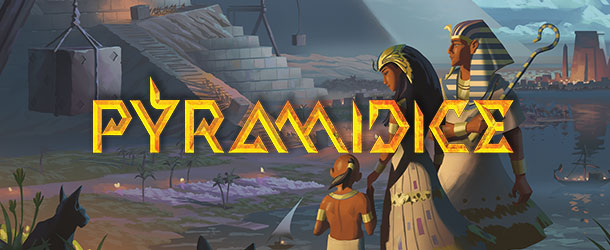

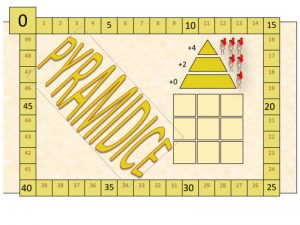
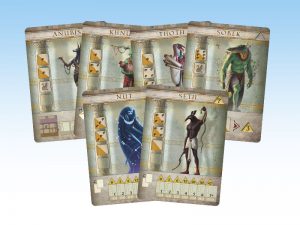
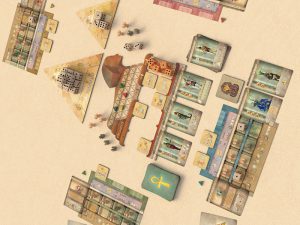
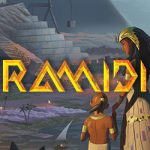






Follow Us on